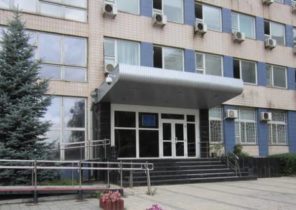
The human race in 30 years should begin to leave the Ground, so as not to die from overpopulation and climate change. With such a warning by Professor Stephen Hawking.
Speaking with a passionate speech at Starmus science festival in the Norwegian Trondheim, astrophysicist said that it is vital to create colonies on Mars and the moon, and collect Noah’s ark of plants, animals, fungi, and insects, to begin creating a new world.
Professor Hawking said the Earth as we know it will die from asteroid strike, high temperature or overcrowding, and that it was only a matter of time.
In his words, “idle space” should not be, because the threats are too serious and numerous.
“I am convinced that humanity must leave the Earth. The earth is becoming too small for us, and our physical resources are being depleted at an alarming rate”.
“We gave our planet a terrible gift in the form of climate change, rising temperatures shrink the Arctic ice cover, deforestation and destruction of many species of animals.”
“When in our history there were similar crises, we usually had a place to move, had something to colonize. In 1492, did Columbus when he discovered the New world. But now no New Light there. There is no country of Utopia just around the corner. We don’t have enough space, and we can only move to other worlds”.
Professor Hawking told his audience that over time the Earth will collide with an asteroid, and it would be a disaster.
“It’s not science fiction, it will give us the laws of physics and probability, he said. To stay means to die.”
“Settling in space will change the future of mankind. It will determine whether we do any future”.
“Wherever we go, we have to create civilization, we have to use practical tools to create a completely new ecosystem that will survive in unfamiliar us environment. We have to think about how to move to other planets several thousand people, animals, plants, fungi and insects”.
According to the Professor, the Moon and Mars is the best place to build the first colonies. He believes that the lunar base can be built in 30 years, and an Outpost on Mars in 50. But Hawking also proposes to get beyond the Solar system and travel to the nearest star system alpha Centauri, where, according to scientists, there is a habitable planet Proxima B.
Hawking said that space ships with engines based on nuclear fusion powered reactors for particles and antiparticles, as in “Star trek”, or a “completely new form of energy” will allow a person to overcome the light.
According to the Professor, a small first step forward has already made Russian billionaire Yuri Milner with his Breakthrough project Start Shot.
It provides for the sending of a fleet of “nanoampere” with light sails to the four-year journey to alpha Centauri, which is nearest to the Earth star system.
Miniature probes with cameras will be dispersed to sail heavy duty laser radiation in the tens of gigawatts, and will arrive to your destination in about 20 years.
“If we succeed, we will ship to alpha Centauri probe, and some of you will still be alive to witness this event,” — said the scientist.
“It is clear that we are entering a new cosmic era. We stand on the threshold of a new era. Colonization of other planets man is no longer science fiction, it may become a scientific fact.”
“The human race exists as a separate species about two million years. Civilization emerged about 10 thousand years ago, and the pace of development is steadily increasing. If humanity wants to live a million years, he needs to boldly go where no one had been. I hope for the best. Have to hope. There’s no other way”.
On the eve of the Day of the asteroid, which is celebrated next Friday, Professor astrophysics research centre Queen’s University Alan Fitzsimmons (Alan Fitzsimmons) also issued a warning that in the event of a collision of an asteroid with the Earth could easily die big city.
Asteroid day is celebrated to commemorate the fall of the Tunguska meteorite in Siberia in 1908, which devastated two thousand square kilometres of taiga.
Professor Fitzsimmons said, “it is Important to know that scientists and engineers have made great strides in the detection of near-earth asteroids and in the understanding of the threat they pose. Today discovered more than 1,800 potentially dangerous, but find there is so much more”.
“Astronomers find near-earth asteroids daily, and for the most part they are harmless. But it is possible that the next Tunguska meteorite catches us by surprise, and although we have learned to look for large asteroids, this is no help to us if we don’t know what to do with them”.







